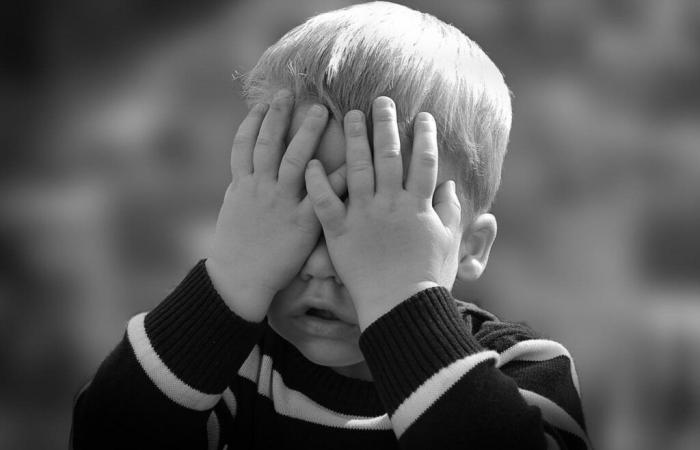
The statistics on the discomfort of young French people are becoming even more refined: a little more than 8% of children aged 3 to 6 attending kindergarten in France experience at least one probable mental health difficulty, according to a study published Tuesday December 10.
This is the first national survey on mental health to focus, in France, on very young children. This is a new part of the epidemiological study on the well-being and mental health of children aged 3 to 11 attending school in mainland France (Enabee) carried out by Public Health France.
By combining the points of view of parents and teachers on a representative sample of more than 2,600 children, this study, carried out in 2022, reveals that 8.3% of children in kindergarten have “at least one probable mental health difficulty, of an emotional, oppositional or inattention/hyperactivity type, impacting their daily life”. In other words, around 1 in 12 children attending nursery school in mainland France are affected.
“These data raise the dimension of the public health problem”commented to Agence France-Presse (AFP) Stéphanie Monnier-Besnard, epidemiologist and project manager of the Enabee study. But “It’s not a surprise that children so young can experience probable mental health difficulties, it’s consistent with” all observations. And, she noted, “this is the same order of magnitude as the results of similar studies in France or in fairly comparable countries, such as Germany or the United States”.
Read also | Article reserved for our subscribers “Normally, I wasn't supposed to have the certificate, so, yeah, I'm proud”: at the rural family home, the local girls drop out of school
Read later
In detail, 1.8% of children in school from the small to large nursery section present “emotional difficulties”5.9% of “oppositional difficulties”1.9% of “inattention/hyperactivity difficulties”estimates the study, based on data collected by questionnaire – online or by telephone – between May and July 2022.
“Even if increased sensitivity to mental health can possibly lead to a little overestimation of certain phenomena, this must be weighed against the fact that the mental health of children has long been left aside and less considered than their physical health”observed Stéphanie Monnier-Besnard. Another lesson: boys present more probable difficulties with repercussions on their lives (11.3%) than girls (5.2%).
“On the differences between boys and girls, the results are consistent with the clinical observations of mental health professionals in particular”Nolwenn Regnault, head of the perinatal, early childhood and mental health unit at Public Health France, told AFP.
Read also | Article reserved for our subscribers Mental health: young psychiatrists campaign against stigma
Read later
Need to intervene from an early age
Nearly 13% of children attending kindergarten consulted a health professional at least once for psychological or learning difficulties in the twelve months preceding the study. And around a third of children presenting at least one type of probable difficulty with an impact on their daily life had consulted a mental health professional in the previous year.
« Prudence » however on the interpretation of the results, warns Public Health France, because “at these early ages, behavioral or emotional difficulties can evolve quickly and their measurement is impacted by the perceptions and expectations of the responding adults”. And it is not a question of clinical diagnoses but of an epidemiological representation.
Read also | Article reserved for our subscribers Mental health: when mental illness occurs, families are on the verge of explosion
Read later
There is no “no point of comparison with pre-Covid: Enabee describes the situation in 2022, a future edition of the study will make it possible to describe developments in the well-being and mental health of children”and indicated Nolwenn Regnault.
Knowing that “Children’s mental health is closely linked to multiple factors”this study “allows us to identify them and target the factors that could alter them, from early childhood, a critical period of development”underlined Doctor Caroline Semaille, Director General of Public Health France, in a press release.
This confirms the need to intervene from an early age and improve mental health support systems before the age of 6, according to the agency which mentions, for example, psychosocial skills. For 6-11 year olds, 13% presented at least one probable mental health disorder, according to the first part of the study, published in mid-2023 and also incorporating the views of children. Mental health was declared a “great national cause” for 2025 by the late Barnier government. A choice favorably received in a sector in persistent crisis, where several voices have above all called for sufficient resources.
Read also | Article reserved for our subscribers From “pro-ana” to algorithmic amplification on TikTok, the sea serpent of content fueling eating disorders
Read later





